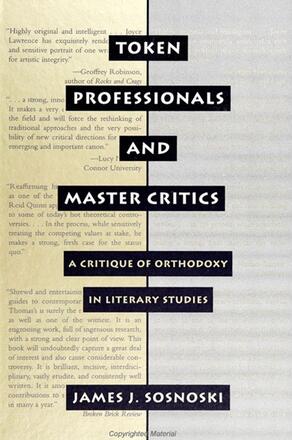
Token Professionals and Master Critics
A Critique of Orthodoxy in Literary Studies
Alternative formats available from:
Description
This book addresses literary critics in mainstream institutions who, though they vastly outnumber their colleagues in more prestigious institutions, have little voice in the profession. It examines the structures through which the institution of literary criticism pressures its members to accept orthodoxy/heterodoxy as categories to describe their work, which in turn provokes theory wars. This opposition produces a method/ application dichotomy which renders members' pursuits scientistic.
James J. Sosnoski is Professor of English at Miami University in Ohio and Executive Director of Alternative Educational Environments, a non-profit organization for the development of collaborative research through telecommunication. He is the author of Modern Skeletons in Postmodern Closets: A Cultural Studies Alternative to the Disciplining of Literary Studies.
Reviews
"It is the most breathtakingly honest account of the profession that I have read, unparalleled in its analysis of the current crisis in English studies and in its proposal for reform. " — James A. Berlin, Purdue University
"Sosnoski unabashedly points out the hierarchical distinction between the elite members of the profession and the rest of us. I think that he sidles up to the real insight in this book—that literary criticism exists only because it has been disciplined. That is, without the discipline of literary studies, the writing and reading of 'literature' would still be done as a leisure activity, or for pay by writers and journalists. All those folks in all those universities who write all those articles for PMLA would be out of work. " — Sharon Crowley, University of Iowa